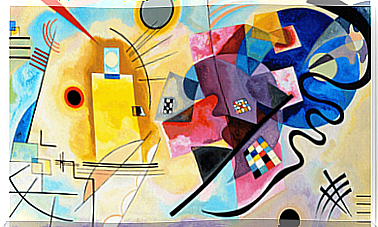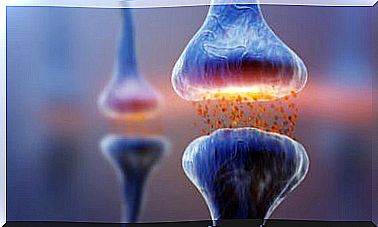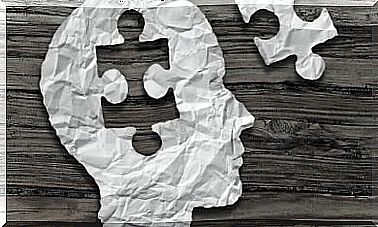11 Distortions That Embitter Our Lives

People have the feeling that we process the world as it is. It is easy to understand that our senses and our mind create distortions, but it is not so easy for the contrary intuition that we may have to give up or give up the battle before this fact.
There are numerous occasions when we distort our perception. Although it is normal, it is also true that these distortions are increased or aggravated in the presence of a mental disorder, such as depression.
That is, these erroneous cognitive distortions make us vulnerable to cognitive sadness, depression and people who frequently suffer from them tend to have low self-esteem.
Therefore, let’s see what are the 11 distortions that your mind makes with respect to reality and define what they consist of and how they manifest themselves to later explain the reason for their appearance.
The 11 distortions your mind makes about reality
Cognitive distortions prevent us from seeing things as they are, that is, they distort reality, by focusing only on a certain aspect.
- : From an isolated event we make a general and universal rule : “He has not paid attention to me today, everyone does not like me.”
- Draw a conclusion without having any reason to do so: “If you don’t look at me it’s because I look ugly” or “I’m sure I will fail the exam even if I study.”
- Automatically use pejorative names to describe ourselves instead of accurately describing us: “I am cowardly, desperate, stupid, weak …”.
- Taking things to extremes without a middle ground : “It has to be perfect or else it is not worth it.
- : Permanently blaming ourselves for things that cannot be our fault: “If I had not left the road so early, there would have been more light and the accident would not have occurred.”

- Suppose that everything has to do with us, even if they are foreign situations that have little or nothing to do with our lives: “Look, Rosa, how she is always arranged, while I am a painting.”
- Believing you know what others think and why they behave the way they do: “think I’m stupid.”
- You feel that you have total responsibility for everything or that you have no control over anything: “This goes wrong because of me”, “I can’t do anything to change”.
- Suppose things are the way you feel them : “I’m going to die”, “All my friends will leave me.
- Mental filter that ignores all the positives and focuses on the negatives: “I passed that important exam because I was lucky.”
- Events are evaluated by giving it an exaggerated or undervalued weight based on real evidence. For example, a case of minimization would be to downplay positive events that have to do with us: “He asked me to marry him, but I would have asked anyone else.”
Explanation of these cognitive distortions
The fundamental elements in Beck’s theory of depression are going to be the schemas, automatic thoughts and cognitive distortions that we have just named.
Cognitive schemas are basic assumptions and beliefs about reality. Automatic thoughts are reflexive, irrational, inappropriate, involuntary and experienced as plausible.
Finally, cognitive distortions are the systematic errors that occur in information processing. Therefore, erroneous cognition is a central element in the discomfort of the person.
All these patterns are formed in childhood and can be activated by a stressful event in adult life that connects with a part of the person. From its activation, we process everything with that negative scheme, which causes cognitive distortions and automatic thoughts to appear. It is here when the COGNITIVE TRIAD of depression appears: negative vision of myself, the world and the future.
To clarify these concepts, let’s look at an example:
“ María is a girl who since childhood has witnessed the repeated abuse of her father to her mother. On the other hand, his mother has told him that this is normal, since all men are the same once they are married.
María assumes it and will have a negative pattern regarding relationships with men that will be activated if she experiences a stressful situation similar to the one that caused that pattern. Several years later, her boyfriend yells at her and that “all men are bad and mistreat ” scheme will automatically be activated .
From then on, all the information will be processed by that scheme, automatic thoughts will appear regarding the nature of what your partner does, eg: “All the damage he does to me is for my good.” Cognitive distortions will be activated when you process information such as emotional reasoning: “I feel like I’m going to die and I won’t be able to leave you.”
All this will contribute to the activation of the depresogenic COGNITIVE TRIAD in Maria’s mind: a negative vision of herself, the situation and the future.
How to deal with our depresogenic schemas, thoughts, and cognitions
The best way to treat a depression that has been caused by this way of processing information is through “Beck’s Cognitive Therapy for Depression.”
Beck’s Cognitive Therapy is very comprehensive, with an educational, skills training, and real-life application phase. Many techniques are used to question or dismantle all the erroneous cognitions that the person starts up and that are lowering their self-esteem and sinking them more and more into the well of depression.
Some of these techniques are reattribution, the search for alternative interpretations, questioning the evidence of these schemes and contrasting the catastrophic predictions that we make non-stop.
In this therapy, the patient-therapist relationship will be important. In addition, its treatment has been shown to be highly effective, especially the one that refers to the behavioral part: it is good to do things and activate ourselves, even if we feel bad and we continue to have these cognitive distortions. Sooner or later, with the energy that movement gives us and the reinforcement to achieve goals, they will fall.









